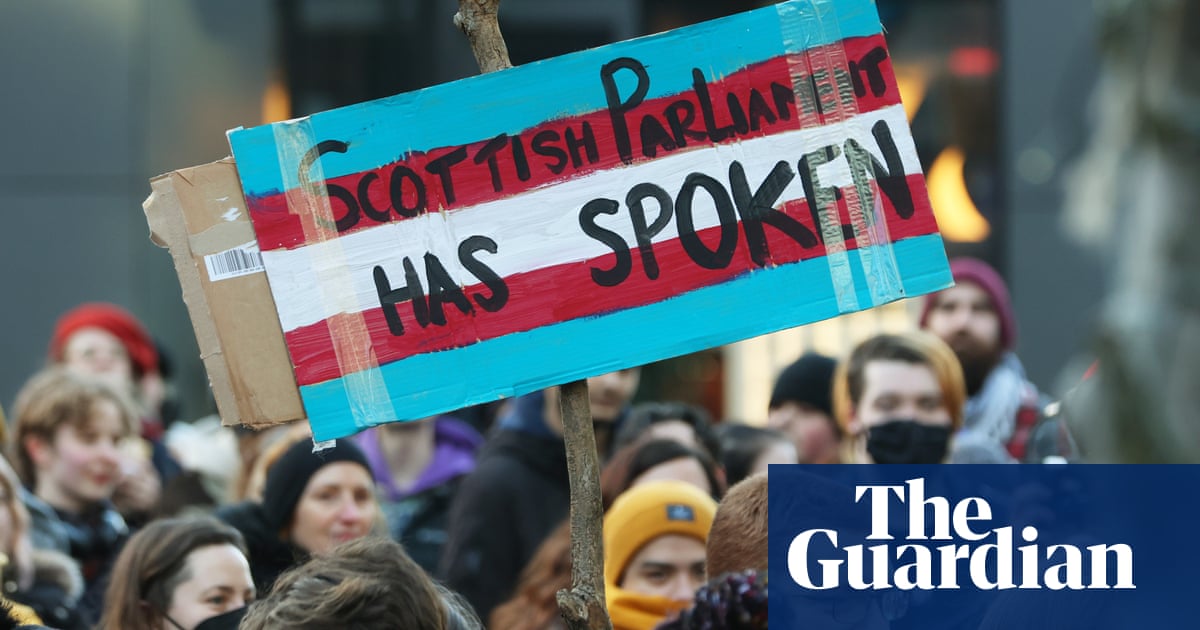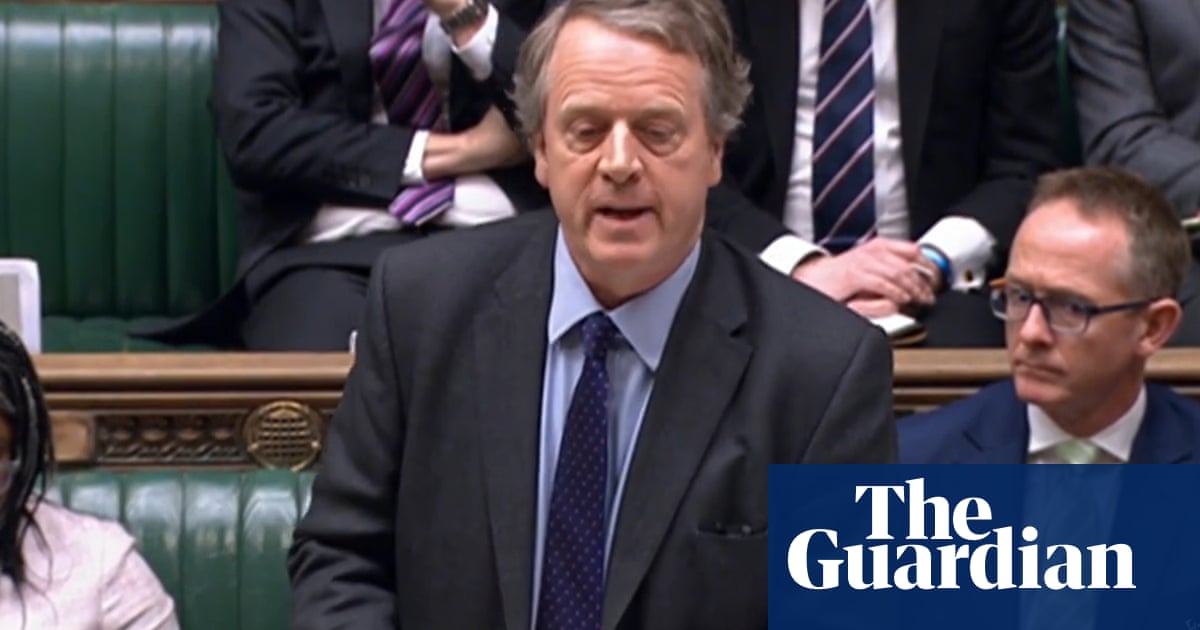
Holyrood’s gender recognition reform bill would leave UK-wide equality law untouched, and the Westminster government’s reasons for blocking it are “almost entirely unsupported by evidence”, Scotland’s most senior law officer has said.
Dorothy Bain, the lord advocate, set out arguments on behalf of Scottish ministers on the first day of their challenge to Downing Street’s unprecedented veto of the bill. The bill was passed by a cross-party majority in the Holyrood parliament last December and would make Scotland the first part of the UK to introduce a self-identification system for people who want to change their legally recognised sex.
The hearing before Lady Haldane, which is expected to last three days, is the first judicial test of how a section 35 order under the 1998 Scotland Act, which created the devolved parliament, can be used. It is likely to have significant implications for the constitutional balance between Holyrood and Westminster.
Bain told the court of session in Edinburgh on Tuesday that the Scottish government’s judicial review was “not about legislative competence … nor is this about the merits of the bill. What this case is about is the proper construction of section 35”.
Bain argued that the UK government’s Scotland secretary, Alister Jack, made his “executive override” based on policy disagreement, and that if the UK government was successful then the minister “could veto practically any act of the Scottish parliament having an impact on reserved matters because he disagreed with it on policy grounds”.
She said a section 35 order was intended to be “narrowly construed” and used only as a last resort.
According to the Scotland Act, a UK secretary of state can block a devolved bill from receiving royal assent if it makes “modifications of the law as it applies to reserved matters” and there are reasonable grounds to believe they would have an “adverse effect on the operation of the law as it applies to reserved matters”.
Jack has argued the Holyrood bill waters down protections for single-sex spaces and contravenes UK-wide equality legislation by introducing a dual system of application for gender recognition certificates between Scotland and the rest of the UK.
Bain argued the Equality Act was “unamended” by the bill because it does not distinguish between a Scottish and a UK certificate.
She raised questions about the timing of the UK government’s intervention, four weeks after the bill was passed in the Scottish parliament, although Haldane pointed out there was no requirement of consultation before making a s35 order.
Bain went on to argue that Jack had relied on “irrelevant considerations” to justify the use of section 35 and that there was no credible evidence from international sources that had already introduced similar measures that the bill would result in fraudulent applications or issues around safeguarding.
She told the court that the UK government had set out “theoretical or hypothetical concerns which are very unlikely to arise in practice” – for example, the potential impact of a dual system on finding comparators for equal pay claims.
Last December, just before the Holyrood bill was passed, Haldane ruled in a long-running case brought by the campaign group For Women Scotland that it was lawful for the Scottish government to extend the definition of “woman” to transgender women with a gender recognition certificate.
David Johnston KC, who is acting for the UK government, will set out its case on Wednesday.












